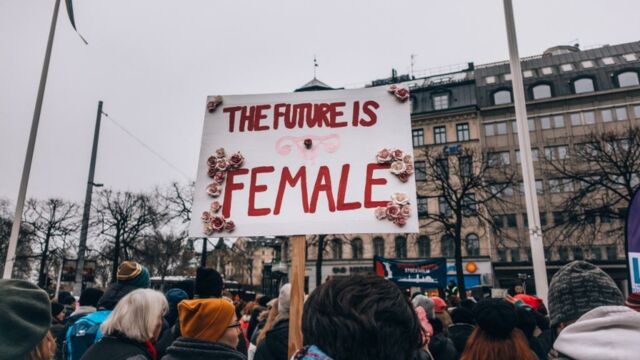According to ActionAid, sexual and reproductive rights mean that everyone, regardless of their age, gender, sexual orientation, or ethnicity, to make informed choices regarding their own sexuality or reproduction. A large part of this is the right to choose whether or when to have children, with abortion being a key part of the fight for reproductive rights.
Discover our latest podcast
Some milestones for women in the UK
4 December 1961: Introduction of the contraceptive pill
At first, it was only allowed for married women, and became universal in 1967. This enabled women to take control of their bodies and whether they wanted to have children or not. It gave them freedom in their reproductive rights.
27 October 1967: Abortion Act
Women were allowed to undergo an abortion up to 24 weeks pregnant. However, two doctors still have to certify the baby’s or the mother’s physical or mental health would be endangered if the pregnancy was not interrupted. However, the Abortion Act does not compel medical professionals who conscientiously object to perform abortions.
Around the world, recent studies estimate that 8-18% of maternal deaths are due to unsafe abortions, which is why safe legal abortions are essential to keep women safe. It is believed that giving young girls information about abortions, contraception, consent and sexual health in general could bring the number of deaths down significantly.

8 March 1975: UN International Year of Women
The United Nations decided on a Year of Women in 1975 to raise awareness to the struggles women faced on a daily basis. It is since then that International Women’s Day is celebrated on 8th March every year.
26 October 1976: Domestic Violence and Matrimonial Proceedings Act
This act allowed married women to get a court order against their abusive husband without having to get a divorce first. It is estimated that one in three women will know violence in her life. Such an act is necessary to protect women’s lives, then and now.
Domestic violence is one of the most prevalent forms of violence against women and it has an immense impact on women's sexual and reproductive health.
ActionAid gives the following definition of domestic violence and underlines its impact:
Domestic violence is the most common form of violence against women. It manifests itself in physical, sexual or emotional abuse as well as controlling behaviours by a current or former partner.
This has a profound affect on women's abilities to prevent unwanted pregnancies and puts them at increased risk of sexually transmitted infections.
Read more:
⋙ Abortion rights could be overturned, this is what it means for us
⋙ Ukrainian refugees in Poland have been denied access to abortions
The importance of safe and legal abortions
While we have come a long way in terms of women's rights, but there is still a lot of progress we could make.
For instance, abortion rights, which were so hard to obtain in the first place, are now endangered around the world. The United States Supreme Court repealed Roe v. Wade, which made abortions legal nationally in the US.
According to Rachel Clarke, a British palliative care doctor, who published an article on The BMJ journal:
Contrary to popular belief, the right to abortion is not fully protected under UK law. The Abortion Act 1967 only partially decriminalises abortion, in cases where two doctors believe that continuing the pregnancy would be harmful to the physical or mental health of the woman or her existing children, an abortion would be less risky than continuing the pregnancy, or the risk is substantial that if the child was born it would suffer mental abnormality or serious physical disability.
If these criteria are not met, women can—and are—still being actively prosecuted in the UK for having an abortion, with some even going to prison.
Thus, abortion is not fully supported by the law in the UK at the moment. This means that a British woman still can't choose to have an abortion simply because she doesn't want a baby or cannot afford to raise it, or even if she fell pregnant after she was sexually assaulted.
The organization Humanists UK aims at providing women access to safe abortions and sexual health and education. They also want safe zones outside abortion clinics so that women about to undergo an abortion are not harassed and can go through this difficult period as peacefully as possible.
Their position is ‘pro-choice’ meaning they want all women to be able to choose whether they want an abortion or not, and to have access to medication and support should they need it.
Read more: 10-year-old rape victim forced to travel to another state to get an abortion in the USA
Sources used:
The British Library: Timeline of the Women's Liberation Movement
Humanists UK: Abortion and sexual and reproductive rights
The BMJ: Rachel Clarke: Are women’s reproductive rights safe in the UK?
Amnesty International UK: Abortion decriminalised in Northern Ireland
ActionAid: Sexual and reproductive health and rights of women and girls
France24: French police face disciplinary hearings amid high numbers of feminicide















